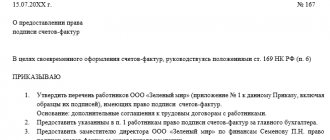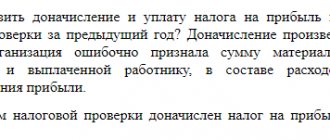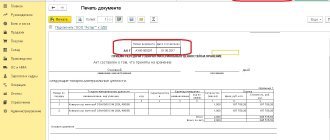How software sales are taxed with VAT in 2022
In 2022, the Tax Code provides an exemption from VAT for transactions on the transfer of exclusive rights to:
- for inventions;
- utility models;
- industrial designs;
- computer programs;
- Database;
- topologies of integrated circuits;
- production secrets (know-how).
The use of the specified results of intellectual activity on the basis of a license agreement is also not subject to VAT.
This benefit is provided for by the currently valid version of subclause 26 of clause 2 of Article 149 of the Tax Code of the Russian Federation.
In addition, a separate exemption from VAT is provided for services for the transfer of rights to use the above-mentioned results of intellectual activity, if they are provided by a foreign organization in favor of a Russian one under a license agreement.
In this case, the Russian organization is not recognized as a tax agent and does not pay VAT as such.
Previously on the topic:
Transfer of rights to software to a Russian company is not subject to VAT until the end of the year
Transfer of rights to programs and VAT: a mixed agreement is not a hindrance to benefits
The letter of the Ministry of Finance of Russia dated May 31, 2021 No. 03-07-08/41894 considers a situation in which a company, in parallel with the transfer of non-exclusive rights to use its software products, enters into an agreement with the client for other services. We are talking about the so-called mixed agreement. The taxpayer asked to dispel his doubts regarding the legality of using the VAT benefit provided for by the Tax Code of the Russian Federation (subclause 26, clause 2, article 149) for this case, starting from 01/01/2021.
Norms of the Civil Code of the Russian Federation for mixed contracts
The parties may enter into a mixed agreement containing elements of various agreements provided for by law or other legal acts.
The relations of the parties under a mixed agreement in the relevant parts are subject to the rules on contracts, the elements of which are contained in it, unless otherwise provided by the agreement (clause 3 of Article 421 of the Civil Code of the Russian Federation). But doesn’t this prevent the VAT benefit from being applied?
Previous rules
Until January 1, 2021, the Tax Code of the Russian Federation (subclause 26, clause 2, article 149) provided for an exemption from VAT for such situations. The rules stated that in Russia the sale of rights to use the results of intellectual activity on the basis of a license agreement
. Officials believed: if the agreement is not purely licensing, or even mixed (including services for implementation, support, etc.), then the VAT benefit does not apply (letters from the Ministry of Finance of Russia dated November 27, 2018 No. 03-07-07/85571, dated 08/12/2014 No. 03-07-11/40167, Federal Tax Service of Russia for Moscow dated 03/10/2009 No. 16-15/020629). This position was supported by the court (ruling of the Supreme Court of the Russian Federation dated February 3, 2016 No. 305-KG15-18998 in case No. A40-56211/2014).
Procedure valid from 01/01/2021
Federal Law No. 265-FZ dated July 31, 2020 changed this norm. The sale of exclusive rights to computer programs and databases is now
included in the Unified Register of Russian Computer Programs and Databases, rights to use such programs and databases, including by providing remote access to them. If a program (database) is included in the registry, then the benefit applies to updates to such a program and additional functionality.
VAT exemption does not apply,
if the transferred rights enable:
- distribute advertising information on the Internet or gain access to such information;
- post offers for the purchase or sale of goods, works, services, property rights on the Internet;
- search for information about potential buyers or sellers or enter into transactions.
As the taxpayer who asked the question correctly noted, there is no longer any mention of a license agreement in the norm under consideration of the Tax Code of the Russian Federation. Does this mean that mixed contracts are now permissible for the purpose of applying the benefit?
At the same time, the taxpayer insured himself. He explained that when a mixed agreement is concluded with the buyer, containing elements of a license agreement and a service agreement, the fee for the right to use the software and the fee for the provision of services are allocated as separate amounts as part of the price of the mixed agreement.
The financiers responded affirmatively that now the form of the agreement does not matter.
Officials explained earlier that the exemption applies regardless of the type of contracts for the transfer of rights concluded (letter of the Ministry of Finance of Russia dated February 12, 2021 No. 03-07-08/9626), but did not specify the details.
In our opinion, to obtain a VAT benefit, the main two facts are:
- the software must be included in the Unified Register of Russian Computer Software and Databases, and the transferred rights to such software are not related to online advertising and trade;
- the amount of payment for software in the mixed agreement is allocated separately.
Introduction of a 20% VAT rate for foreign software
Federal Law No. 265-FZ dated July 31, 2020, as part of the tax maneuver, provided a number of preferences to Russian companies in the field of IT technologies.
In particular, the VAT benefit for foreign software not included in the unified register of Russian programs for electronic computers and databases was cancelled.
From January 1, 2022, VAT exemption applies only to:
- when exercising exclusive rights to computer programs and databases included in the unified register of Russian computer programs;
- rights to use computer software and databases, including updates to them, implemented, inter alia, by providing remote access to them via the Internet.
Services for the transfer of exclusive rights to computer software and databases, as well as the rights to use such programs and databases, will be exempt from VAT only from the moment such programs are included in a special Register.
The Ministry of Finance drew attention to this in a letter dated November 16, 2020 No. 03-07-08/99545.
As for foreign software not included in this Register, from January 1, 2022, its sale or transfer of rights to use such software is subject to a VAT rate of 20%.
At the same time, services for the transfer of rights to use software are subject to VAT, regardless of the date and conditions of concluding contracts for the provision of these services.
The Ministry of Finance made this conclusion in a letter dated November 20, 2020 No. 03-07-08/101332.
More on the topic:
What is the essence of the tax maneuver for IT companies in 2021?
What tax and contribution benefits will IT industry organizations receive in 2021?
Development and transfer of software under license
The Ministry of Finance has repeatedly drawn the attention of taxpayers that VAT is imposed on work on the creation of results of intellectual activity performed under contract agreements (see Letter of the Ministry of Finance dated October 21, 2014 No. 03-07-03/52967). However, in 2010-11, the courts considered another dispute related to the creation and modification of a computer program and its transfer to the customer, and its outcome was the opposite (case No. A40-121512/2010). The court of first instance decided that the parties entered into contract agreements with each other, which provided for the creation of software for the customer. The contractor undertook to prepare technical specifications for the software package, create and modify the software, and transfer exclusive and non-exclusive rights to it to the customer. But the higher authorities sided with the taxpayer. At the same time, they rejected three key arguments of the tax authorities:
- that the results of intellectual activity originated directly from the customer;
- that the contractor performed work for the customer on the creation and modification of computer programs, and such operations are not exempt from VAT;
- and that no licensing agreement was concluded between the parties.
The courts indicated that the will of the parties to the contracts was aimed specifically at transferring exclusive rights to the customer (this will was expressed in the contracts, which corresponds to paragraph 1 of Article 1296 of the Civil Code).
Moreover, each of the agreements (there were three in total) contained a section describing the procedure for transferring the exclusive right. The parties entered into mixed agreements, which included the creation and modification of software; transfer of exclusive and non-exclusive rights to the software; and even the performance of related work (however, this clause of the contracts was not the subject of dispute in the courts). Payment was made specifically for the transfer of exclusive and non-exclusive rights. As the courts pointed out, despite the fact that the subject of the contracts also included the creation and modification of software, these works were not paid separately in accordance with the terms of the contracts. Rejecting the inspector's argument that the parties did not enter into a license agreement, the courts explained that the name of the agreement does not affect the qualification of the parties' relationship, since it is determined based on the terms of the agreement and its features. The agreements contained the terms and characteristics of several agreements, including all the essential terms of agreements on the alienation of exclusive rights.
conclusions
So, in order to apply the benefits provided for in subparagraph 26 of paragraph 2 of Article 149 of the Tax Code of the Russian Federation, it is necessary to carefully work on drawing up the agreement. It would be good if it was called a license , but in any case it must contain all the essential terms of such an agreement in accordance with Article 1296 of the Civil Code.
The main thing that should be spelled out in detail in the contract is the conditions for transferring the software to the customer and the accompanying transfer of exclusive and non-exclusive rights . If there are several subjects of the contract, for example, drawing up technical specifications, software development and transfer of rights, it is worth describing in detail the conditions of each of these subjects/stages. Please note that since these tax preferences apply to the transfer of rights, payment must be linked to this process.
The contract should also note the need for software updates or support. Let us note that, according to the Federal Tax Service and arbitration courts, services for updating or modifying programs to meet customer requirements are operations subject to VAT.
The main thing is the contract
However, arbitrators do not always come to this conclusion. The content of the contract on the basis of which the software is developed and the exclusive rights to it are transferred to the customer is of decisive importance. For example, several years ago the courts considered a similar case, and then the arbitrators supported the taxpayer.
The parties entered into three agreements for the development and modification of software. The contracts were of a mixed nature and were concluded in relation to a whole range of works: drawing up technical specifications, developing and modifying software, and performing related work. It is important that each of the contracts contained conditions under which the contractor transferred to the customer exclusive rights to the results of his intellectual activity.
Representatives of the Federal Tax Service insisted that the agreements between the parties were of a contractual nature. The parties did not enter into a license agreement providing for the transfer of exclusive and non-exclusive rights. Consequently, the company challenging the tax provided its counterparty with the service of developing and modifying software, and such transactions are subject to VAT.
The court indicated that the relationship between the parties is qualified not on the basis of the name of the agreement that they entered into, but on the basis of its terms. Even though the agreements between the customer and the contractor were not called licensing agreements, they contained all the signs of such agreements. They expressed the will to transfer the rights to the exclusive use by the customer of the results of the intellectual activity of the performer and described the procedure for transferring these rights.
Moreover, according to the terms of the contracts, payment was made specifically for the transfer of rights to the software to the customer. And although the contracts contained other items in addition to the transfer of these rights (software creation and related work), these works were not paid for separately.
All of the above circumstances gave the court grounds to classify the relationship between the parties as an agreement on the alienation of exclusive rights. Thus, the court recognized the rightness of the taxpayer and the legality of his failure to pay VAT.
Exemption from VAT of a license agreement
So, license and sublicense agreements are subject to this rule. But this preference can be applied only if certain conditions are met:
- The transfer of rights to IP products is necessarily accompanied by the execution of a license/sublicense agreement. No other type of concluded agreement, such as a purchase and sale agreement or an agency agreement, retains the possibility of applying tax exemption for the user. Those. VAT will have to be paid when concluding a license agreement through agents, a subcontractor, or by directly signing the purchase and sale agreement between the parties, since the legislator considers the execution of transactions under such agreements as the provision of services (in particular, by an agent for the principal or a seller for the buyer) and, accordingly, is not subject to exemption from VAT (letter of the Ministry of Finance dated October 6, 2016 No. 03-07-11/58299);
- Rights from the licensor should be transferred on the basis of an exclusive (provided for one user or a strictly limited circle of consumers) or simple (non-exclusive) license, which allows the rights to the IP product to be transferred to an unlimited number of users. At the same time, the possibility of applying VAT preferences does not depend on the fact of registration of intellectual rights to the product;
- It is important to consider the timing of the contract. A license agreement is not subject to VAT only in a situation where it is certified by the parties before the rights to the ID product have been transferred to the end user. Thus, not only the type of agreement is important, but also the sequence of actions - first they entered into a license agreement, then they completed the transaction;
- Concluding licensing agreements with VAT exemption is advisable in companies with well-organized separate accounting of activities subject to and non-taxable to VAT.
The licensor is allowed to take into account the price of the media, technical documentation, packaging and accompanying materials in the cost of the transferred rights. All listed elements included in the price under the license agreement are also not subject to VAT.
Exemption from VAT does not depend on the method of exercising rights to an IP product under a license or sublicensing agreement - the electronic version of such a transaction, on the same basis as the one actually carried out, is also not subject to tax, subject to the conditions listed above.





